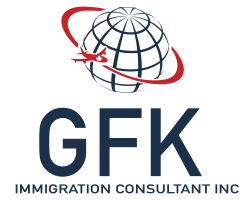
Canada Immigration Backlog Falls to 821,200
New IRCC Update: Canada’s Immigration, Refugees, and Citizenship Canada (IRCC) has released its latest backlog update on March 20, 2025, revealing a total of 2,029,400 applications in its inventories as of February 28, 2025.
The present data marks a notable shift from January 31, 2025 update, offering fresh insights into Canada’s immigration processing trends.
Here’s a concise breakdown of the numbers, a comparative analysis with January, and what it means for applicants.
Table of Contents
Breaking Down Latest Canada Immigration Backlog Numbers
In February, there was a reduction of 47,200 applications and a backlog decrease of 70,900 compared to January 31, 2025, when IRCC reported 2,076,600 total applications (with 892,100 in backlog).
Here’s how the categories stack up:
- Citizenship: Increased slightly from 238,600 applications (42,000 in backlog) to 239,600, with the backlog rising to 42,700.
- Permanent Residency: Grew from 356,400 in backlog (out of 836,900 total) to 364,000, but the backlog percentage dropped from 45% to 43%, signalling improved processing.
- Temporary Residency: Dropped significantly from 998,100 applications (493,700 in backlog) to 947,200, with the backlog shrinking from 49% to 44%.
January vs. February 2025: A Comparative Snapshot
To understand February’s progress, let’s compare it with January 31, 2025 data, when IRCC reported 2,076,600 total applications, including 892,100 in backlog.
By February, the total dropped by 47,200, and the backlog shrank by 70,900—a promising sign of improvement. Here’s a detailed comparison in table form:
| Category | January 2025 Total | January Backlog | January Backlog % | February 2025 Total | February Backlog | February Backlog % |
|---|---|---|---|---|---|---|
| Citizenship | 238,600 | 42,000 | 17.6% | 239,600 | 42,700 | 18% |
| Permanent Residency | 836,900 | 356,400 | 45% | 842,600 | 364,000 | 43% |
| Temporary Residency | 998,100 | 493,700 | 49% | 947,200 | 414,500 | 44% |
| Total Inventory | 2,076,600 | 892,100 | 43% | 2,029,400 | 821,200 | 40% |
Analyzing the Trends
Citizenship: The slight uptick in total applications (238,600 to 239,600) and backlog (42,000 to 42,700) reflects steady demand, with backlog inching from 17.6% to 18%.
This category remains the least delayed, likely due to fewer variables like sponsorship or economic quotas affecting processing.
Permanent Residency: The February data shows 364,000 applications, with 156,520 (43%) in backlog—a drop from January’s estimated 45% backlog rate.
This suggests IRCC prioritized permanent residency, reducing delays even as total applications rose.
The 69,200 new permanent residents welcomed in 2025’s first two months underscore this focus, though the 43% backlog signals ongoing strain from high demand.
Temporary Residency: The most significant improvement lies here, with total applications falling from 998,100 to 947,200 and backlog shrinking from 493,700 (49%) to 414,500 (44%).
This aligns with the 112,572 study permits and 260,431 work permits finalized in 2025 so far—key drivers of temporary residency.
Canada’s appeal to international students and workers fuels this category’s volume, but February’s reduction hints at streamlined efforts.
Overall: The total backlog fell from 43% to 40%, inching closer to IRCC’s 80% service standard goal.
The 47,200 drop in total applications and 70,900 backlog reduction suggest IRCC is chipping away at delays, though permanent and temporary residency backlogs (43% and 44%) remain stubborn.
What’s Driving the Change?
The backlog reduction reflects IRCC’s ongoing efforts to meet its 80% service standard goal, despite managing over 2 million applications at any time.
In 2024, IRCC finalized 7 million decisions, and early 2025 data shows continued momentum with 328,100 new citizens welcomed since April 2024.
However, high application volumes and limited spaces in some programs keep backlogs persistent, especially for permanent and temporary residency.
For immigrants, students, and workers, this update signals faster processing in temporary residency (e.g., study and work permits), while permanent residency and citizenship face steadier challenges.
With Canada’s immigration system under global scrutiny, these trends could influence application strategies and expectations.
Stay tuned as IRCC’s efforts to balance efficiency and demand shape Canada’s immigration
landscape in 2025.
GFK Immigration
Gboyega Esan RCIC R708591
Phone: +1 (647) 225-0092
#studyincanada #studyabroad #canada #studyinuk #studyinaustralia #ielts #studentvisa #studyinusa #studyvisa #immigration #canadavisa #visa #education #internationalstudents #overseaseducation #study #canadaimmigration #highereducation #studyoverseas #canadastudyvisa #immigrationconsultant #australia #university #workpermit #canadapr #expressentry #studyineurope #immigrationcanada
